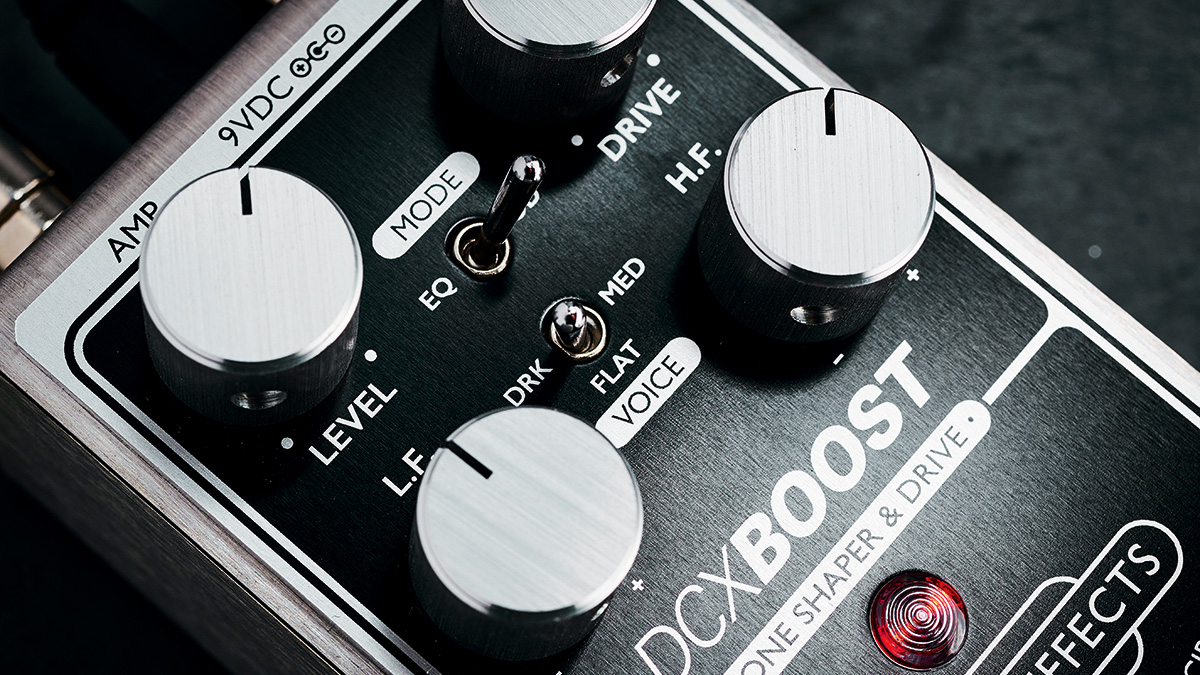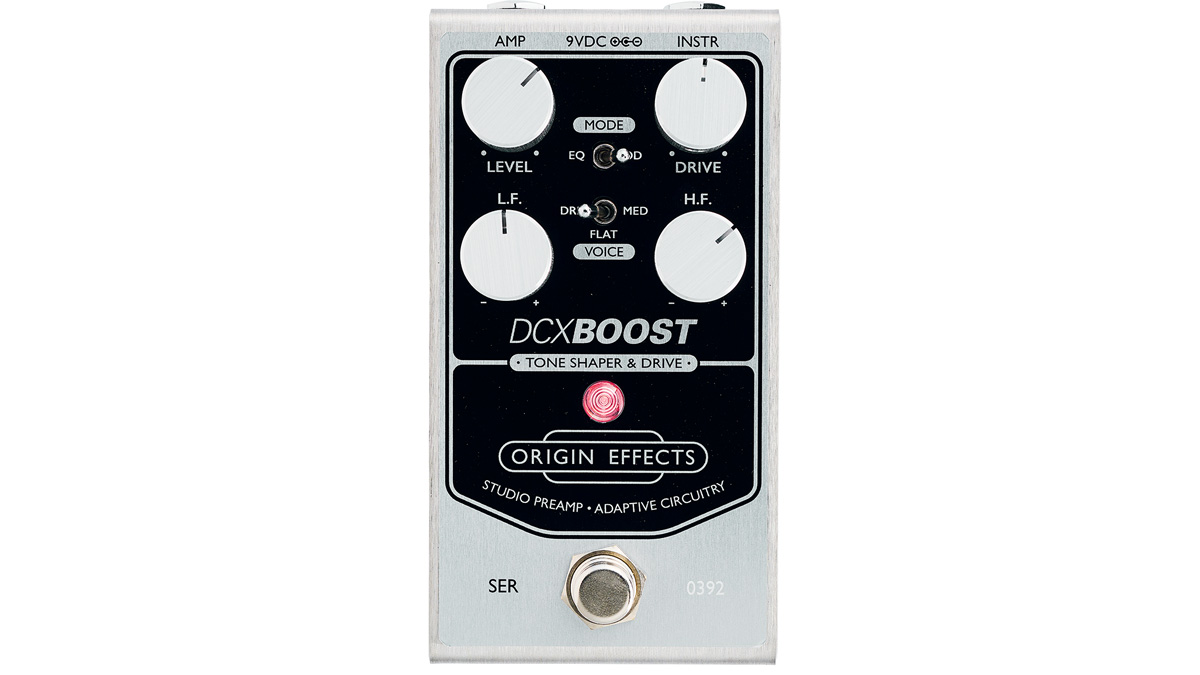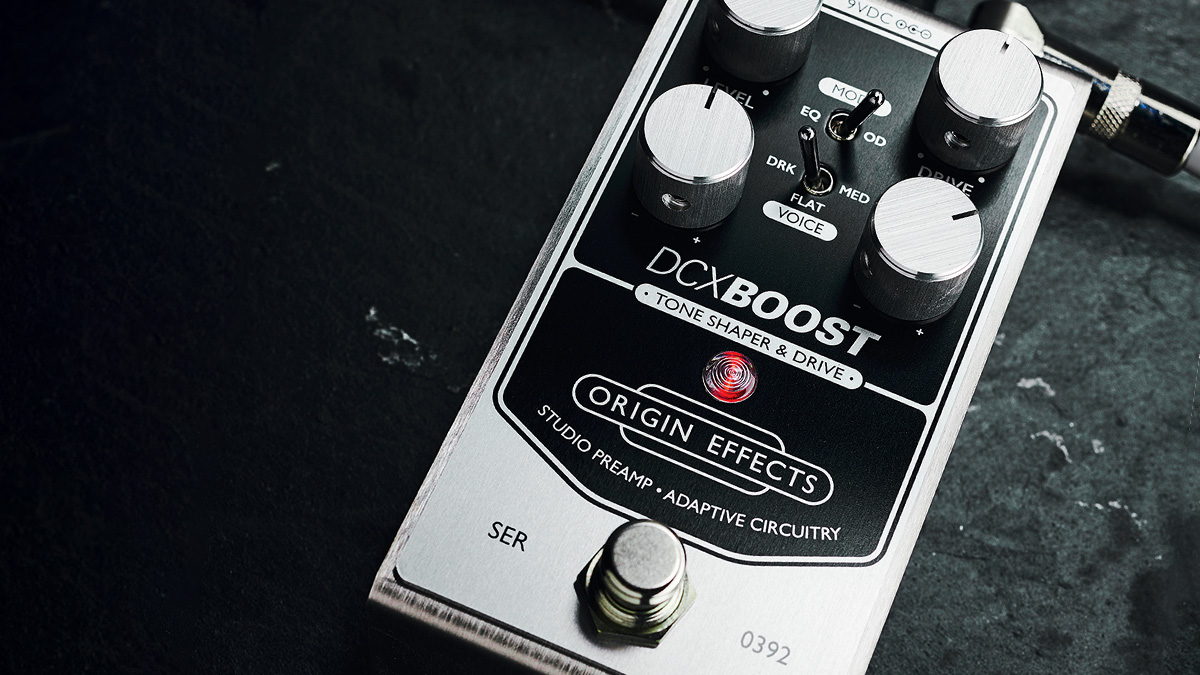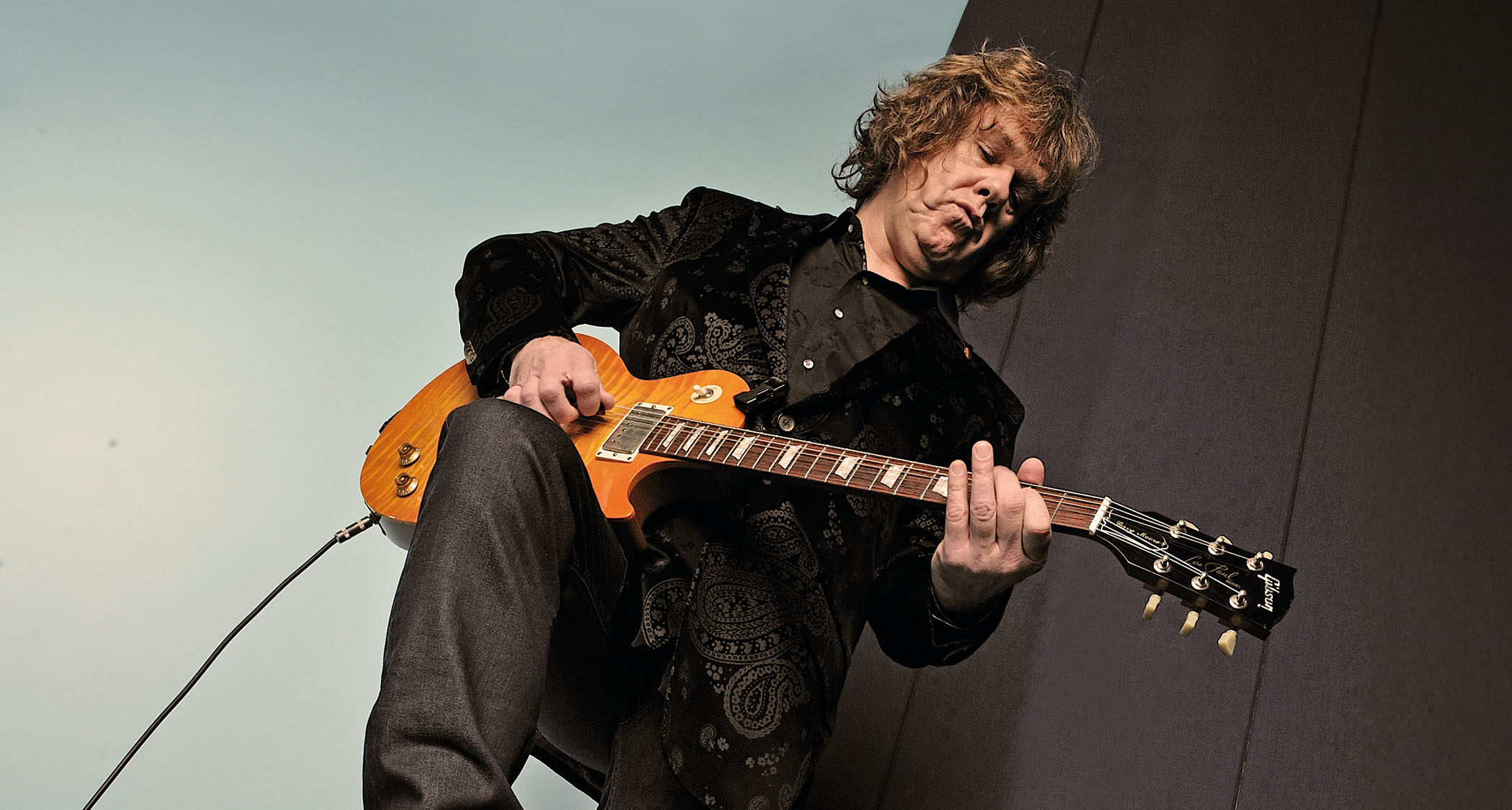Guitar World Verdict
The DCX from Origin Effects is a really versatile boost and drive with tightly focused EQ options. If we were restricted to just having one pedal in front of an amp, this is the one we’d choose.
Pros
- +
Origin’s usual high standard of build quality.
- +
Compact size.
- +
Great response to playing dynamics.
- +
Variety of sounds.
Cons
- -
Absolutely nothing.
You can trust Guitar World
Origin Effects has history with pedals that are based on classic studio equipment, with its Cali76 offering Urei 1176-style compression and the M-EQ Driver featuring Pultec-style EQ.
Now we have the DCX Boost, inspired by the Universal Audio 610 recording preamp – DCX being the Roman numerals for 610. Described as a tone-shaper and drive pedal, the DCX Boost reimagines the 610 circuitry, optimizing it for electric guitar and aiming to deliver the sort of sonic enhancement that the vintage circuitry would add with either a completely flat frequency response or some tonal tweaking.
The pedal has two modes: EQ and OD. EQ is the go-to mode if you’d like some clean boost, although at higher settings of the Drive knob it is capable of drive that’s perfect for adding a bit of grit to clean sounds and covering ‘edge of break-up’ and beyond. This is one of those pedals that simply improves your tone just by being active – even at a flat setting and unity gain it brings something more.

There are plenty of tonal options to set things perfectly to your guitar and amp combination: a Voice switch offers two levels of top-end roll-off, and in EQ mode Origin has incorporated its Adaptive Circuitry, which keeps clean sounds bright and sparkly, reining back the treble with increasing drive.
Low and high frequency tone knobs seem to have been voiced perfectly for electric guitar, contributing a positive tonal effect, even at the extremes of their travel.
Switch to OD mode and you’ll find some excellent drive tones. There’s no Adaptive Circuitry here, but there is a tighter low-end and a natural treble to suit drive sounds, plus extra attenuation via the Voice switch.
There are some fine tones to be had with the Voice switch engaged to roll off treble but with the High knob sweetening the top that’s there.
All the latest guitar news, interviews, lessons, reviews, deals and more, direct to your inbox!
Towards the extremes of the Drive knob things get fuzz-like or, perhaps more accurately, like a console preamp being overdriven – something that’s been regularly used in music production over the years with a guitar plugged straight in.
Spec

- PRICE: $319 / £259
- ORIGIN: UK
- TYPE: Tone shaper and drive pedal
- FEATURES: Buffered bypass
- CONTROLS: Level, Drive, L.F., H.F., Mode switch (EQ/OD), Voice Switch (Dark/Medium/Flat), Bypass footswitch
- CONNECTIONS: Standard input, standard output
- POWER: 9V DC adaptor (not supplied) 90mA
- DIMENSIONS: 58 (w) x 124 (d) x 64mm (h)
- CONTACT: Origin Effects
Trevor Curwen has played guitar for several decades – he's also mimed it on the UK's Top of the Pops. Much of his working life, though, has been spent behind the mixing desk, during which time he has built up a solid collection of the guitars, amps and pedals needed to cover just about any studio session. He writes pedal reviews for Guitarist and has contributed to Total Guitar, MusicRadar and Future Music among others.


